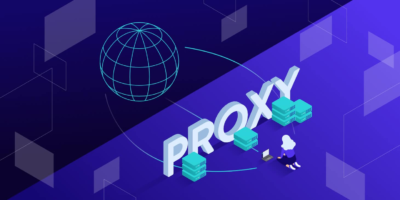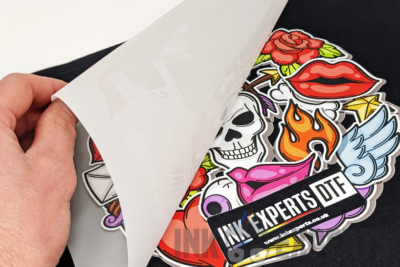Can Web 3.0 Transform the Intellectual Property Ownership?

The Web3 is now home to well-known properties like Forbes and Marvel, which has forced the entertainment industry to shift its emphasis to survive. But ever since this modification began, there have been several issues. Because Web3 remains in its early stages, numerous problems still need to be resolved before it can be fully understood and used. Finding solutions to the issues of content ownership and distribution, but also intellectual property ownership is essential to preventing disputes.
In 2021, the market for Web 3.0 was worth US$3.2 billion. North America leads, accounting for around 34% of the global market. The market value of Web 3.0 is $27.5 billion, while online businesses raised more than US$1.8 billion only in Q1 2022.
Let’s look at the possibility that Web 3.0 will soon transform intellectual property ownership.
Issues with the Modern Web
Web1 was established to provide its clients with a free atmosphere. Web2 eventually superseded web1, commonly referred to as the current internet version. Despite creating a trillion-dollar business and technology, Web2 still needs help.
Currently, a few giants control and run the Web. You must have the authority to take action on Web 2.0. To do the task, you will need another person’s help. Because you can only do basic chores like paying your electric bill, meaning you will need the bank’s help. These service providers must respect any online requests from customers. The disadvantage of this architecture is that if the service provider were down for a lengthy period, a sizable percentage of consumers would suffer.
Web 3.0
Web3 has drawn attention for a while now. The most accurate way to sum it up is as a highly developed kind of internet connectivity made possible by decentralized blockchains. The creator of Parity Technologies, Gavin Wood, referred to his predictions for the internet’s future back in 2014 as “Web 3.0.”According to him, Web3 is a genuinely democratic, decentralized version of the internet we use today that is not now dominated by many influential individuals.
Without blockchain, Web 3 would not be possible. A blockchain is a block-organized, digitally recorded database or repository that holds vast volumes of data. Each block contains data items, such as characters or numbers, that are specific to that block and are linked to other blocks via a network. Every time one of a block’s contents changes, the data in that block is updated. Because this has an impact on the entire network, transparency is assured.
It is important to emphasize that the fundamental Web3 technologies provide a fully decentralized Internet architecture. We would no longer need service providers since the goods and services would be created on blockchains and publicly handled by algorithms. By doing away with the middlemen, consumers, and producers can monetize their work in ways that aren’t conceivable on current platforms.
Ownership of Intellectual Property and Content
On a decentralized Web3, the idea of intellectual property and content ownership could be in danger. Examining the shortcomings in the present ownership system is necessary to comprehend the fundamental causes of the disruption:
Meaning and Understanding
Today, stock platforms have used stock footage more frequently than content producers. The current framework typically favors platform owners over content suppliers. However, as alternatives are lacking and these sites offer a secure payment option, writers keep using them to share their work.
Web3 will facilitate faster user engagement between users and developers by doing away with middlemen. Each centralized organization will get a portion of the settlement funds.
Intellectual Property Ownership
The main drawbacks of the current IP ownership system are its expensive prices and onerous legal restrictions. The current strategy could be more effective in the contemporary, networked environment. Even when businesses operate concurrently in various countries, there are severe geographical restrictions on IP ownership.
Decentralized databases and platforms, such as Web3, offer several crucial components for administering intellectual property rights. These technologies enable tracking upcoming owners and providing digital timestamps to creative work. Creators may use smart contracts to guarantee that a specific portion of each sale price belongs to the original inventor.
The decentralized approach will enable asset mobility, trade, and monetary value to address these problems. Licensing and contractual obligations are made simpler by the routing of transactions through a shared network and their tracking there.
Web 3.0 and Intellectual Property
The emphasis Web3 has put on upholding user ownership of digital content raises difficult legal questions substantively and practically. Serious issues include future regulations and the transition from state to non-state-controlled legislation and technologically driven regulatory frameworks.
The intellectual property in Web3 poses challenging issues surrounding securing assets in these new digital settings, making it obvious that existing protection laws need to be modified to meet the legal requirements of this type of system.
Real risks associated with the move to Web3 and new, inclusive models of long-term digital information ownership must be acknowledged and comprehended.
A View of the Future
The next ten years will see the gradual transition of intellectual property to decentralized ownership, made possible by Web3 and blockchain technology.
Due to Web3, which will offer content creators additional alternatives, they will recover control in how they are compensated for their work.
To achieve this, several other developments must be made along the route. There is a ton of reading content on Web3, but it has yet to impact the majority of people. However, if Web3 keeps growing at its current rate, ultimately, everything will change. Web3 will, without a doubt, ultimately revolutionize the digital world, but this process is somewhat challenging. The majority of firms seek the help of experts in the area of blockchain app development since they are aware that a project needs to change the playing field in order to be effective radically.
Alexia is the author at Research Snipers covering all technology news including Google, Apple, Android, Xiaomi, Huawei, Samsung News, and More.












